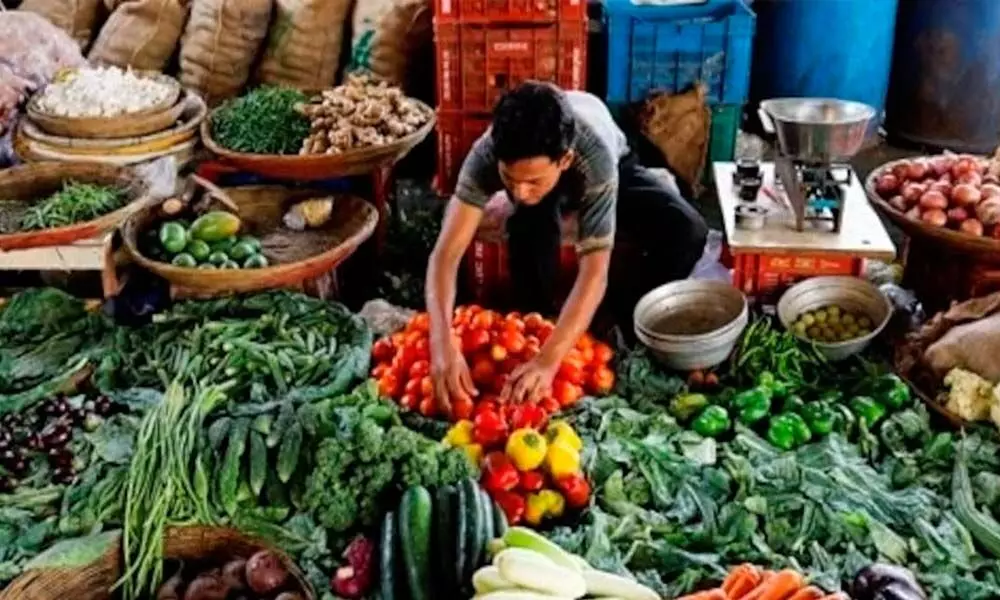Inflation likely to stay elevated
It may average around 6.3% this fiscal, will remain sticky: experts
image for illustrative purpose

New Delhi: After unseasonal rains, supply disruptions and pandemic-induced woes pushed retail inflation well over the Reserve Bank's comfort zone in 2020, the scenario is likely to stay that way at least in the short term as economic recovery slowly gains foothold.
For most part of this year, pricier food items pushed the retail inflation, based on Consumer Price Index (CPI), higher in the range of 6.58-7.61 per cent, except for March when the reading was 5.91 per cent.
Experts believe retail inflation is likely to average around 6.3 per cent this fiscal and mostly will remain sticky going forward owing to pick-up in demand across sectors. In indications of supply chain bottlenecks, wholesale price-based inflation was mostly benign this year, touching a low of (-) 3.37 per cent in May and a maximum of 3.1 per cent in January.
The economic recovery is witnessing early signs of revving up after being ravaged by the coronavirus pandemic and a historic nationwide lockdown for a few months that began in late March to curb Covid-19. In a rare instance, no retail inflation data was published by the government in April and May as field visits by officials could not happen during the lockdown. Consumers shelled out more to buy 'Tomato, Onion and Potato' or the TOP.
The trio is also the focus of the central government's Operation Greens initiative announced two years ago to ensure their adequate supplies throughout the year without any price shocks. TOP ruled as high as Rs 60-80 per kilogram (kg) at some or the other point of time during the year as unseasonal rains affected output and coronavirus-induced lockdown caused supply disruptions, among other factors.
Even as prices of cereals may soften due to bumper kharif crop arrivals and winter-season vegetables, other food prices are expected to remain elevated, according to the Reserve Bank of India (RBI). Also, crude oil prices have started to gain momentum after a lull as economic activities have started getting back to normal, though slowly.
The RBI expects retail inflation to be at around 5.8 per cent by the end of March 2021, and will further ease to 5.2-4.6 per by September next year, not a very uncomfortable position vis-a-vis its mandate of 4 per cent with a bias of 2 per cent on either side (+/-2 per cent).
At the policy review earlier this month, RBI Governor Shaktikanta Das said the Monetary Policy Committee (MPC) was of the view that inflation is likely to remain elevated, barring transient relief in winter months from prices of perishables. "Our paramount objective is to support growth while ensuring that financial stability is maintained and preserved at all times," Das said on December 4.
With demand now strengthening, the concern is that despite some easing of supply and logistical disruptions, inflation will not ease meaningfully in the near term, other than a base effect driven moderation, rating agency Icra's Principal Economist Aditi Nayar said.
She noted that with demand strengthening and some households having greater visibility on their income outlook, inflation expectations are expected to remain high. During the year, retail inflation was highest at 7.61 per cent in October, before softening down to 6.93 per cent in November.
The inflation print for December will be known in mid-January. Meanwhile, the wholesale inflation print in November at 1.55 per cent was the highest in 9-months due to costlier manufactured items, even as food prices cooled, indicating improving economic activity. It was 1.48 per cent in October. (PTI)
Kalpana Mandal

